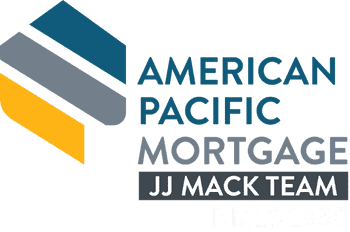Buying a home when you’re self-employed can feel overwhelming — especially in California, where lending rules are strict and income documentation is more complex. The good news? Thousands of self-employed buyers purchase homes across Roseville, Sacramento, and the rest of California every year. With the right preparation, you can absolutely qualify for a competitive self employed mortgage in California.
This guide breaks down exactly how self-employed buyers can get approved, what lenders look for, and how to make your application stronger.
Who Counts as Self-Employed?
You’re considered self-employed if you are a:
-
1099 contractor
-
Freelancer
-
Gig worker
-
Independent business owner
-
Sole proprietor
-
LLC or S-Corp owner
-
Partner in a business making 25%+ of the income
If any of these fit you, lenders will use self-employment guidelines to qualify your mortgage.
Why Self-Employed Borrowers Are Evaluated Differently
Traditional W-2 employees have consistent, predictable income.
Self-employed income fluctuates, so lenders want to ensure your income is stable and likely to continue.
They primarily look at:
-
Income stability over the last 24 months
-
Average income over 1–2 years
-
Add-backs like depreciation
-
Business strength and cash flow
-
Your ability to repay the loan long-term
Being self-employed doesn’t make getting a mortgage harder — it just requires more documentation and planning.
The Documents You’ll Need
Here’s what most California lenders require for self-employed borrowers:
✔ 2 Years of Personal Tax Returns
Including all schedules.
✔ 2 Years of Business Tax Returns
If applicable (LLC, S-Corp, Partnership, etc.).
✔ Year-to-Date Profit & Loss Statement
Shows your current income relative to last year.
✔ Business Bank Statements
Typically the most recent 2–6 months.
✔ K-1s, 1120s, or 1099s
Based on business structure.
✔ Proof the Business Is Active
This may include:
-
Business license
-
Website
-
CPA letter
How Lenders Calculate Self-Employed Income
Most lenders use a two-year average of your self-employment income.
Example:
-
2023 income: $120,000
-
2024 income: $100,000
Average used for mortgage: $110,000
However, if your most recent year is higher, some lenders can use a one-year income average, depending on the program.
They may also use “add-backs,” such as:
-
Depreciation
-
Business mileage
-
Home office deductions
These reduce your taxable income but don’t reduce your qualifying income.
Best Loan Programs for Self-Employed Buyers
California offers several great mortgage options:
1. Conventional Loans
Most common option for self-employed borrowers.
✔ Competitive rates
✔ Can use 1 or 2 years of returns
✔ Allows many income add-backs
2. FHA Loans
Great for buyers with lower credit or higher debt ratios.
✔ As little as 3.5% down
✔ More flexible guidelines
3. Bank Statement Loans
Perfect for buyers with strong cash flow but high tax write-offs.
✔ Uses 12–24 months of bank statements, not tax returns
✔ Ideal for contractors, gig workers, or business owners
4. CalHFA Loans
Self-employed buyers can also use CalHFA programs for lower down payments and closing costs.
✔ Works with FHA and Conventional
✔ Great for first-time buyers
✔ Grants and down payment assistance available
5. VA Loans (if eligible)
If you’re a veteran or active-duty service member.
✔ 0% down
✔ No mortgage insurance
✔ Flexible income requirements
How to Improve Your Chances of Approval
1. Keep Your Business and Personal Finances Separate
Using separate business accounts helps lenders verify income more easily.
2. Avoid Big Write-Offs the Year Before Buying
Tax write-offs reduce your taxable income…
…but they also reduce the income lenders can use.
Sometimes it makes sense to take fewer deductions the year before you buy.
3. Maintain Strong Business Cash Flow
Consistent deposits are more important than massive spikes.
4. Keep Credit Utilization Low
Aim for under 30%.
Under 10% gets the best results.
5. Pay Down Debt Before Applying
Lower debt = better debt-to-income (DTI) ratios = higher approval odds.
6. Work With a Lender Experienced in Self-Employed Mortgages
Many lenders aren’t familiar with how to correctly calculate self-employment income.
An experienced lender can help you qualify for more than you might think.
What Self-Employed Buyers in Roseville Should Expect
The Roseville, Rocklin, and Loomis areas have strong homebuyer competition but also great loan options for self-employed borrowers.
Local lenders often understand:
-
Placer County’s higher-than-average income levels
-
Common industries like tech, contracting, healthcare, and small business
-
Bank statement and alternative documentation loans
Working with a local expert can speed up pre-approval and improve your chances of getting the home you want.
Final Thoughts
Getting a mortgage as a self-employed buyer in California isn’t as difficult as it may seem — you just need to prepare your documents, understand how lenders evaluate income, and work with a team that specializes in self-employed borrowers.
Whether you’re buying in Roseville, Rocklin, Loomis, or anywhere in California, the right lender can help you maximize your qualifying income and get the strongest approval possible.
Contact us or fill out the form below to get started.

